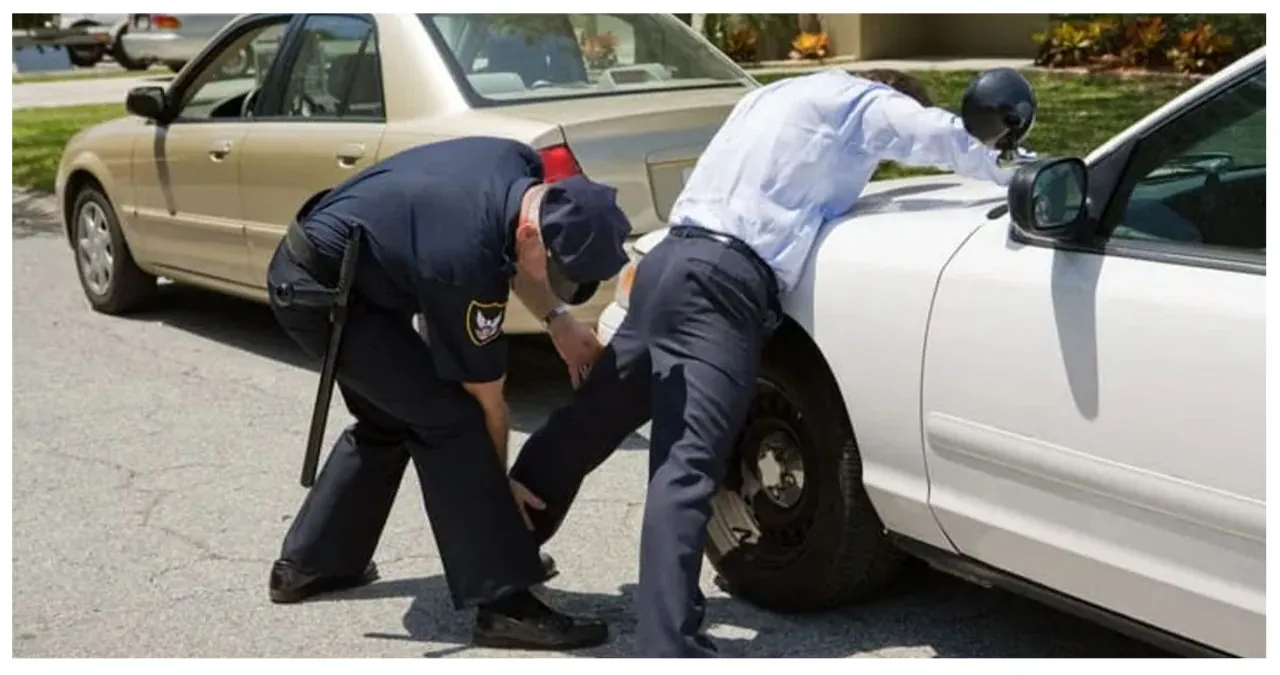Driving in Virginia, your phone nestled innocently in its holder, you’re pulled over for a broken taillight. An officer approaches, checks your license, and asks a seemingly casual question: “Mind if I take a look at your phone?” Suddenly, your once mundane commute spirals into a whirlwind of privacy concerns. Can the officer legally search your digital life hidden within that device? As with most legal matters, the answer isn’t black and white.
Understanding the Fourth Amendment: The Bedrock of Privacy
The bedrock of your privacy during traffic stops lies in the Fourth Amendment of the United States Constitution. It protects against unreasonable searches and seizures, ensuring law enforcement respects your belongings and personal information. This translates to Virginia police, barring specific exceptions, needing a warrant or your freely given consent to search your phone.
Warrantless Searches: A Tightrope Walk for Officers
Without a warrant, police face a steep uphill battle to access your phone’s content. Consent becomes paramount. If you willingly hand over your unlocked phone and agree to a search, the evidence obtained is generally admissible in court. However, remember, you have the right to refuse. Be polite but firm if you’re uncomfortable. Your refusal cannot be used against you.
Probable Cause: When the Scales Tip in Favor of the Police
But what if the officer suspects your phone holds the key to solving a crime, like DUI evidence or a witness statement in a hit-and-run? They can apply for a warrant based on probable cause, a reasonable belief that evidence related to a crime exists on your phone. This warrant needs a judge’s approval before the search can proceed.
Exigent Circumstances: The Rare Exception to the Rule
Imagine a scenario where there’s an imminent threat to public safety, like a bomb threat linked to your phone. In such rare cases, officers might conduct a warrantless search under exigent circumstances to prevent immediate harm.
Beyond Warrants and Consent: Additional Considerations
- Document the Interaction: If you feel pressured to grant access, politely decline and consider recording the interaction (Virginia is a one-party consent state for recording).
- Know Your Rights: Familiarize yourself with your Fourth Amendment rights. Knowledge is power, especially when interacting with law enforcement.
- Seek Legal Counsel: If you encounter a situation where an officer insists on a search without valid justification, consult a lawyer for specific legal advice.
A Landscape in Flux: Emerging Case Law and Technology
The legal landscape surrounding phone searches during traffic stops is constantly evolving. Recent Supreme Court rulings, like Riley v. California, have strengthened protections for personal data stored on phones. As technology advances and digital footprints become increasingly complex, courts will continue to grapple with balancing public safety concerns with individual privacy rights.
Conclusion: Protecting Your Digital Domain
In conclusion, navigating the legal landscape of phone searches during traffic stops in Virginia requires a nuanced understanding of Fourth Amendment rights. The constitutional protection against unreasonable searches and seizures forms the bedrock of privacy, emphasizing the importance of warrants or consent. Warrantless searches demand careful consideration, with consent being a pivotal factor, while probable cause and exigent circumstances present exceptions. Armed with knowledge, individuals can confidently assert their rights, decline unwarranted searches, and document interactions if necessary. As technology and case law evolve, staying informed becomes paramount for safeguarding one’s digital domain and preserving the delicate balance between public safety and individual privacy.
Additional Resources
- Electronic Frontier Foundation (EFF): https://www.eff.org/
- National Highway Traffic Safety Administration (NHTSA): https://www.nhtsa.gov/
- Virginia Code §§ 46.2-918 & 46.2-924: https://law.lis.virginia.gov/
Also Read:
- Texas Cannabis Capital Revealed: This City Tops the Charts in Weed Consumption!
- Weed Capital of New Jersey Revealed: This City Tops the Charts!
- This Florida City Has the Highest Weed Consumption Rate in the State



